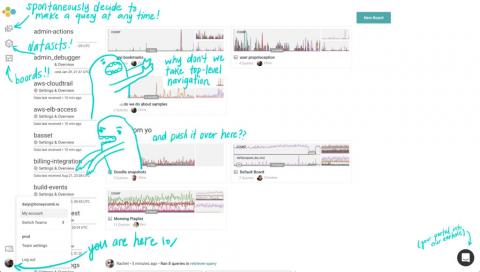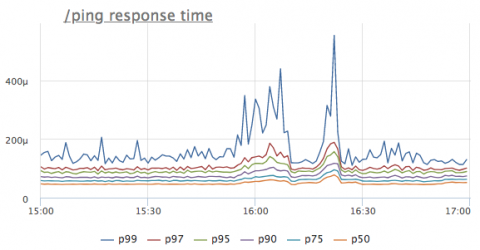Operations | Monitoring | ITSM | DevOps | Cloud
%term
What's New This Summer
2018 has been a momentous year at PagerDuty. We spent the past six months accelerating the development of many new PagerDuty product innovations, and have released a variety of updates and enhancements across our digital operations management platform and mobile applications.
Completing IT Security With Critical Alerting
Businesses and organizations shouldn’t simply rely on monitoring tools for security management. Such tools don’t provide redundancies, time-stamped audit trails and other elements needed for incident resolution. Also, security threats are rampant and tend to go unchecked even with the most reliable monitoring service. That’s why companies require critical alerting to become aware of security incidents and immediately solve them for business continuity.
Feel Confident and Bold in this New Summer Look
Welcome to a fresh new Honeycomb navigation! At the hive, we’ve been working on making navigating your Honeycomb environment simpler and more intuitive, and just deployed some changes that we hope you’ll agree have made progress toward that goal.
Understanding Sumo Logic Query Language Design Patterns
The Sumo query language can be a source of joy and pain at times. Achieving mastery is no easy path and all who set on this path may suffer greatly until they see the light. The Log Operators Cheat Sheet is a valuable resource to learn syntax and semantics of the individual operators, but the bigger questions become “how can we tie them together” and “how can we write query language that matters?”
Operation Data - The 18 Key Principles of DataOps
The term DataOps was coined back in 2015 but only really became a significant force in professional circles during the latter part of 2017. But what is this latest tour de force in software development methodology?
Second Quarter 2018: Results are in
We started out the year strong, and the trend continues! Earnings for the second quarter of 2018 surpassed Q2 2017 by 24%!
Simple/hard metrics that help reduce MTTR when looking for a root cause
Recently there was a mini-incident in a data center where we host our servers. It did not affect our service after all. And thanks to the right operational metrics, we’ve been able to instantly figure our what’s happening. But then an thought came up to me, how we would’ve been racking our heads trying to understand what’s happening without 2 simple metrics.
Tear Down the Walls Between Customer Service, Dev, and Ops
For decades Development and Operations teams worked in silos. As a result, innovation stalled and gaining a competitive edge in the marketplace grew difficult. Too much red tape slowed product development to a crawl.
5 Server Monitoring Tools you should check out
You work on your software’s performance. But let’s face it: production is where the rubber meets the road. If your application is slow or it fails, then nothing else matters. Are you monitoring your applications in production? Do you see errors and performance problems as they happen? Or do you only see them after users complain? Worse yet, do you never hear about them? What tools do you have in place for tracking performance issues? Can you follow them back to their source?











